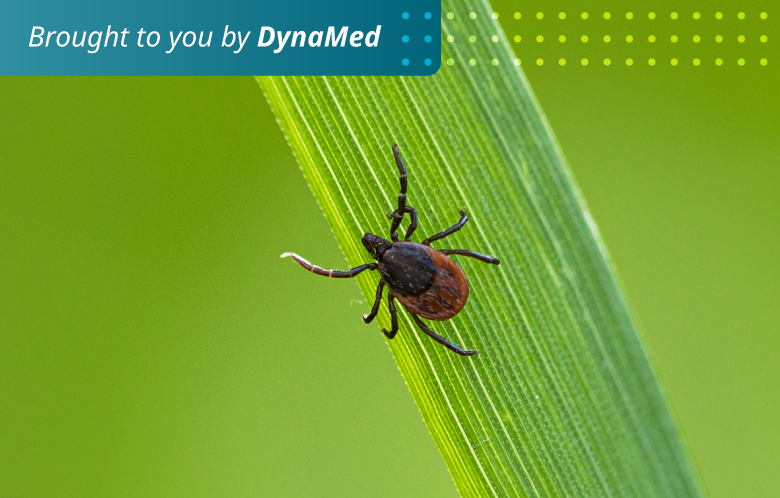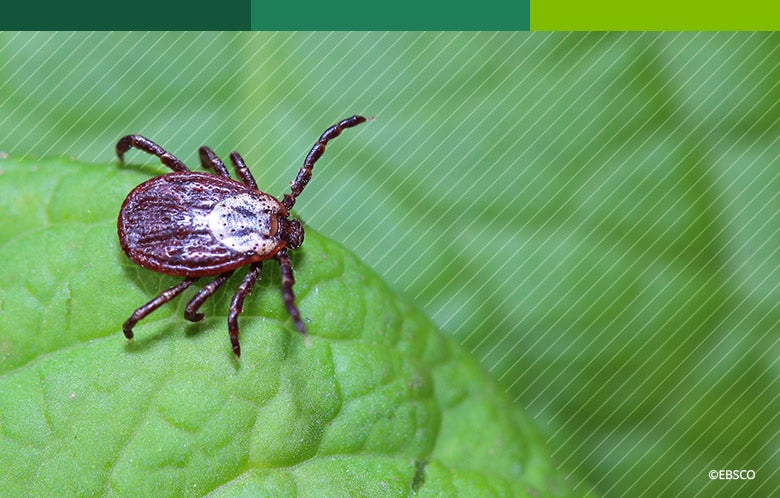1. What is alpha-gal syndrome?
Alpha-gal syndrome is an IgE-mediated allergy to the oligosaccharide galactose-alpha-1,3-galactose (alpha-gal) found in nonprimate mammalian meat. The condition was initially discovered after noting that patients with anaphylaxis to cetuximab (used in the treatment of malignancies) and delayed anaphylaxis to red meat had IgE antibodies specific to alpha-gal. As this constellation of symptoms primarily occurred in the Southeastern part of the United States, very astute physicians were able to determine that a tick bite, specifically the lone star tick (Ambloyomma americanum) which is endemic to that region, was the culprit in inducing alpha-gal syndrome.
2. What symptoms should make me think of alpha-gal syndrome? What should I do if I think my patient has it?
Reactions in alpha-gal syndrome are delayed, occurring three-six hours after the ingestion of meat. Reactions can range in severity from localized hives to more severe anaphylaxis. Gastrointestinal symptoms are common. As a tick bite triggers this syndrome, these patients classically have eaten meat for years without issue, which, along with the delayed reaction, contribute to the difficulty in diagnosing alpha-gal syndrome. As the severity of the reaction can vary, all patients should be prescribed an epinephrine autoinjector and be referred to an allergist for evaluation. Traditional skin prick testing and serum specific IgE (sIgE) to the meat itself are often negative, but there is a sIgE specifically for alpha-gal. An allergist may offer an oral food challenge (medically supervised ingestion of the food) to establish the diagnosis and/or evaluate if it has been outgrown.
3. Do patients have to avoid all meats and meat-related products?
Patients with alpha-gal syndrome must primarily avoid mammalian or “red” meat. In the United States, this typically consists of beef, pork and lamb, and includes the internal organs of these animals (i.e., liver, kidneys) as well. Poultry (i.e., chicken and turkey) and fish are tolerated since they are not mammals. A small subset of patients may react to dairy products such as milk and cheese, with an even smaller subset reacting to gelatin-containing foods. However, strict avoidance of these lower risk categories is not recommended routinely in patients.
An additional consideration is avoidance of medications or medical products which contain alpha-gal. The highest risk example is cetuximab, but it can also be found in on gelatin-based plasma expanders, bovine/porcine heart valves and gelatin containing vaccines (i.e., MMR). Complete avoidance of all listed products may not be necessary and an allergist can be helpful in clarifying what specifically the patient needs to avoid.
4. I practice in the southeastern U.S., should I do blood work as a screen on my patients?
Positive sIgE to alpha-gal has been noted in up to 15 percent of patients in cohorts from the southeastern United States, the majority of which have no symptoms with the ingestion of mammalian meat. Therefore, blood work as a screening tool is not typically recommended in asymptomatic persons.
5. Can patients outgrow alpha-gal syndrome?
Patients who have additional tick bites may increase their sIgE levels targeting alpha-gal, while those who avoid tick bites will often experience a decrease in serum levels and can potentially outgrow the allergy. Reintroduction of meat into their diet may be guided by their allergist. Therefore, in addition to appropriate avoidance of mammalian meat to prevent anaphylaxis, avoidance of tick bites through clothing and sprays is also recommended.



